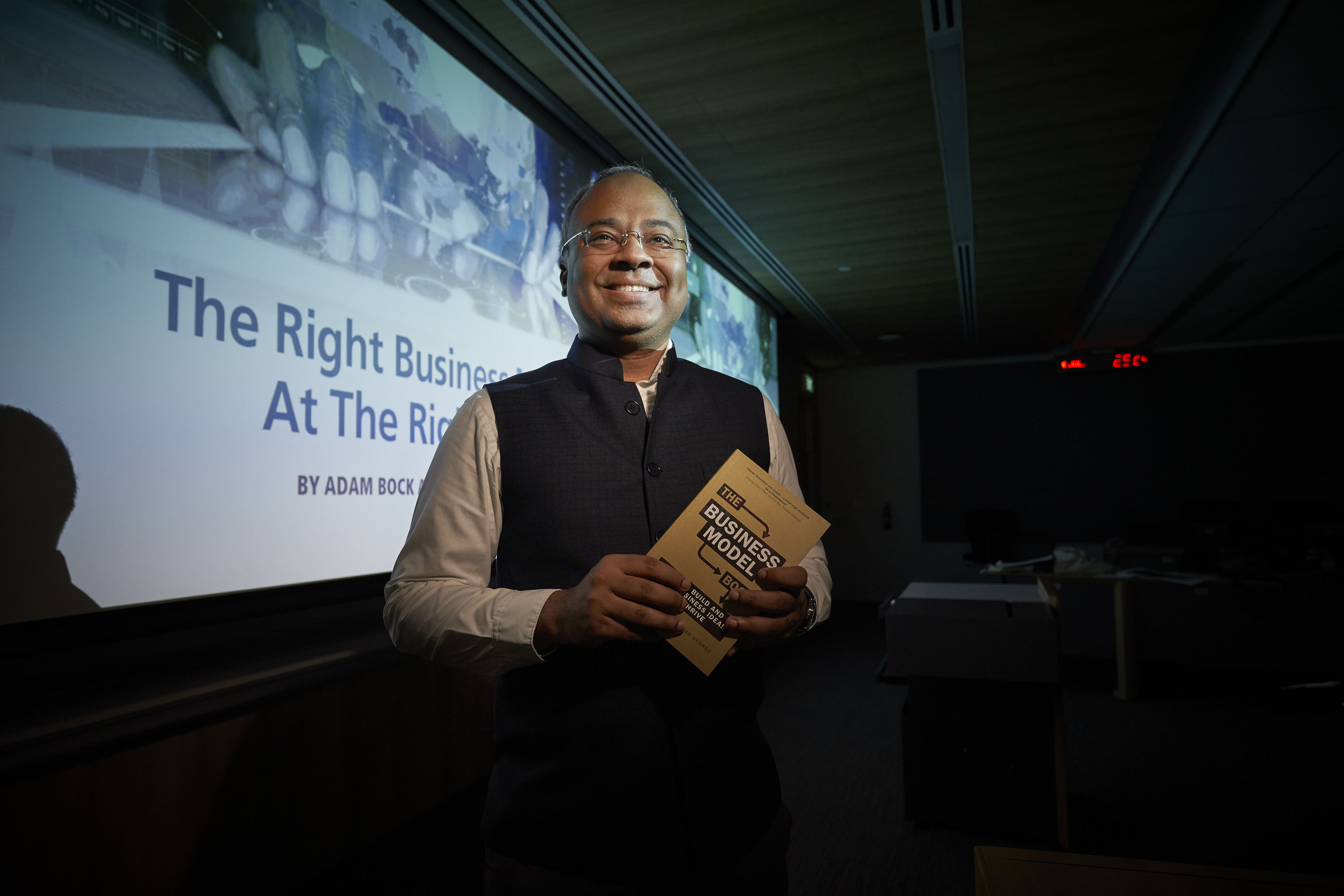
The stereotype of an academic is one who writes papers that very few people read. Professor Gerry George is not that kind of academic.
Professor George is the Dean of the Lee Kong Chian School of Business and he is also the Lee Kong Chian Chair Professor of Innovation and Entrepreneurship.
His latest book, The Business Model Book: Design, build and adapt business models that drive business growth, is a book that begs to be widely read, especially by entrepreneurs and would-be entrepreneurs.Synthesising the latest research, Prof George, together with his co-author Adam Bock, have written a guide to business models that comes with a workbook for business model innovation. The book builds on a narrative approach on how entrepreneurs conceive and change business models. It shows the reader how to create, test, adapt and innovate successful and appropriate business models in any business context. It also applies a novel, life-cycle based approach to make business models relevant to a company's development stage. As a company changes over time—so should its business model.
According to Professor George, there are four elements to a good business model: “How we think about resources, transactions, value creation and capture, and how we develop narratives to combine these things.”
“The idea of the book is how you manage the three, and how you use narrative at the centre of it.”
The book aims to be of practical use to entrepreneurs and has short activities and simple frameworks help the reader diagnose the flaws and bottlenecks in their own business model. It also provides stage-specific templates for real insight on business model change, innovation, and revolution. Small business leaders can use the book to test possible business models; while large firm managers who want to improve or transform the system of activities that create and capture value will find the book useful. Executives of larger, diversified companies can learn how to consider when to implement multiple business models within the same organisation.
Professor George believes that this book will help people become better entrepreneurs. “I really do believe that entrepreneurship itself, the trying out of new ideas and taking risks, is a learned skill. What I’m hoping the book will do is help the aspiring entrepreneur try out different ideas and help them pick one out.”
While entrepreneurs often say that entrepreneurship cannot be taught, Dr George believes that these people themselves learned to be entrepreneurial. “People taught them, but not in class.”
“Entrepreneurship is a learned skill, you have to train your brain to look at different opportunities.”
Uncovering a possible opportunity is only the first step though, he said. Entrepreneurs have to ask: “It is an opportunity, is it viable, and is it for them?” That is where this book comes in. This is the third book that Prof George has co-authored with Dr Bock, the other two being Models of Opportunity: How Entrepreneurs Design Firms to Achieve the Unexpected and Inventing Entrepreneurs: Technology Innovators and their Entrepreneurial Journey.
Professor George explained that the current book builds on the earlier work. When they first started collaborating, about 10 years ago, they discovered that not many people knew what a business model was. “Here’s a concept that everyone uses, but no one knows that it means.”
“Many people were thinking of business models as a strategy, but no one thinks about how you design a business itself to make a business happen.” That led to a paper that led to the book Inventing Entrepreneurs.
The second book, Models of Opportunity, was about the importance of creating narratives to get investment to build new technology.
In publishing his latest book as a how-to book, Professor George is putting into practice what he is preaching for the school, which is to produce impactful research. Publishing a popular book, of course, is just one way to have impact. “We still need to do more to work with industry, with policy making bodies, where our faculty are able to give input in shaping government policy, and where our faculty are thought leaders for industry.”
He admitted that this will not be straightforward. “It involves a mindset change to think of working with industry as part of research.”